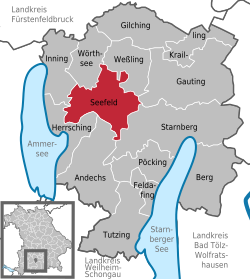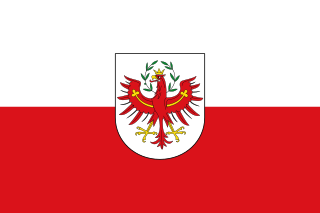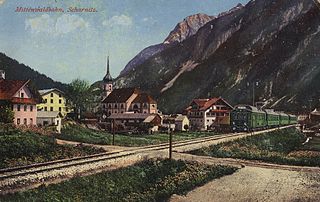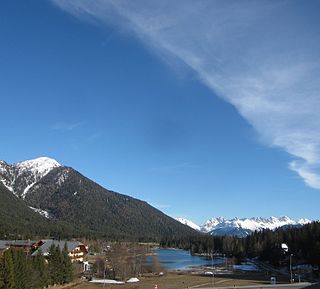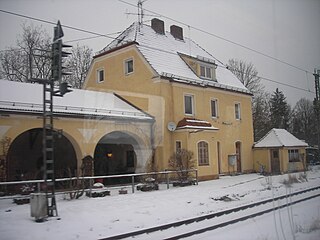| Seefeld | ||
|---|---|---|
The old town hall | ||
| ||
| Coordinates: 48°2′N11°12′E / 48.033°N 11.200°E Coordinates: 48°2′N11°12′E / 48.033°N 11.200°E | ||
| Country | Germany | |
| State | Bavaria | |
| Admin. region | Oberbayern | |
| District | Starnberg | |
| Government | ||
| • Mayor | Wolfram Gum (CSU) | |
| Area | ||
| • Total | 34.87 km2 (13.46 sq mi) | |
| Elevation | 570 m (1,870 ft) | |
| Population (2016-12-31) [1] | ||
| • Total | 7,367 | |
| • Density | 210/km2 (550/sq mi) | |
| Time zone | CET/CEST (UTC+1/+2) | |
| Postal codes | 82229 | |
| Dialling codes | 08152 | |
| Vehicle registration | STA | |
| Website | www.seefeld.de | |
Seefeld is a municipality in the district of Starnberg in Bavaria, Germany. The town lies on the western shore of the Pilsensee ("Pilsen Lake"). It is connected to the Bavarian capital city of Munich by the S-Bahn line S8. Seefeld is notable for the Seefeld Castle (c. 1302), a seat of the Toering noble family of Bavaria.

Municipalities are the lowest level of official territorial division in Germany. This is most commonly the third level of territorial division, ranking after the Land (state) and Kreis (district). The Gemeinde which is one level lower in those states also includes Regierungsbezirke as an intermediate territorial division. The Gemeinde is one level higher if it is not part of a Samtgemeinde. Only 10 municipalities in Germany have fifth level administrative subdivisions and all of them are in Bavaria. The highest degree of autonomy may be found in the Gemeinden which are not part of a Kreis. These Gemeinden are referred to as Kreisfreie Städte or Stadtkreise, sometimes translated as having "city status". This can be the case even for small municipalities. However, many smaller municipalities have lost this city status in various administrative reforms in the last 40 years when they were incorporated into a Kreis. In some states they retained a higher measure of autonomy than the other municipalities of the Kreis. Municipalities titled Stadt are urban municipalities while those titled Gemeinde are classified as rural municipalities.

Starnberg is a Landkreis (district) in the southern part of Bavaria, Germany. Neighboring districts are Fürstenfeldbruck, Munich, Bad Tölz-Wolfratshausen, Weilheim-Schongau and Landsberg.

Bavaria, officially the Free State of Bavaria, is a landlocked federal state of Germany, occupying its southeastern corner. With an area of 70,550.19 square kilometres, Bavaria is the largest German state by land area. Its territory comprises roughly a fifth of the total land area of Germany. With 13 million inhabitants, it is Germany's second-most-populous state after North Rhine-Westphalia. Bavaria's capital and largest city, Munich, is the third-largest city in Germany.



